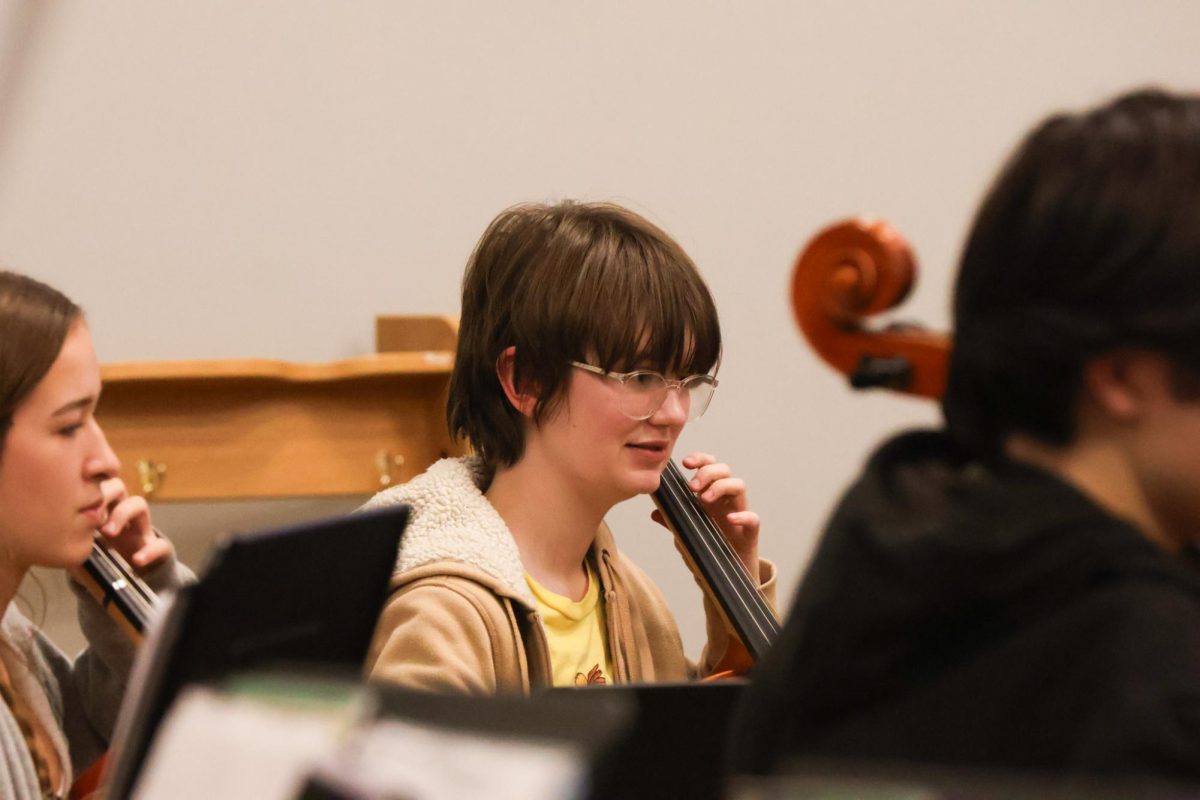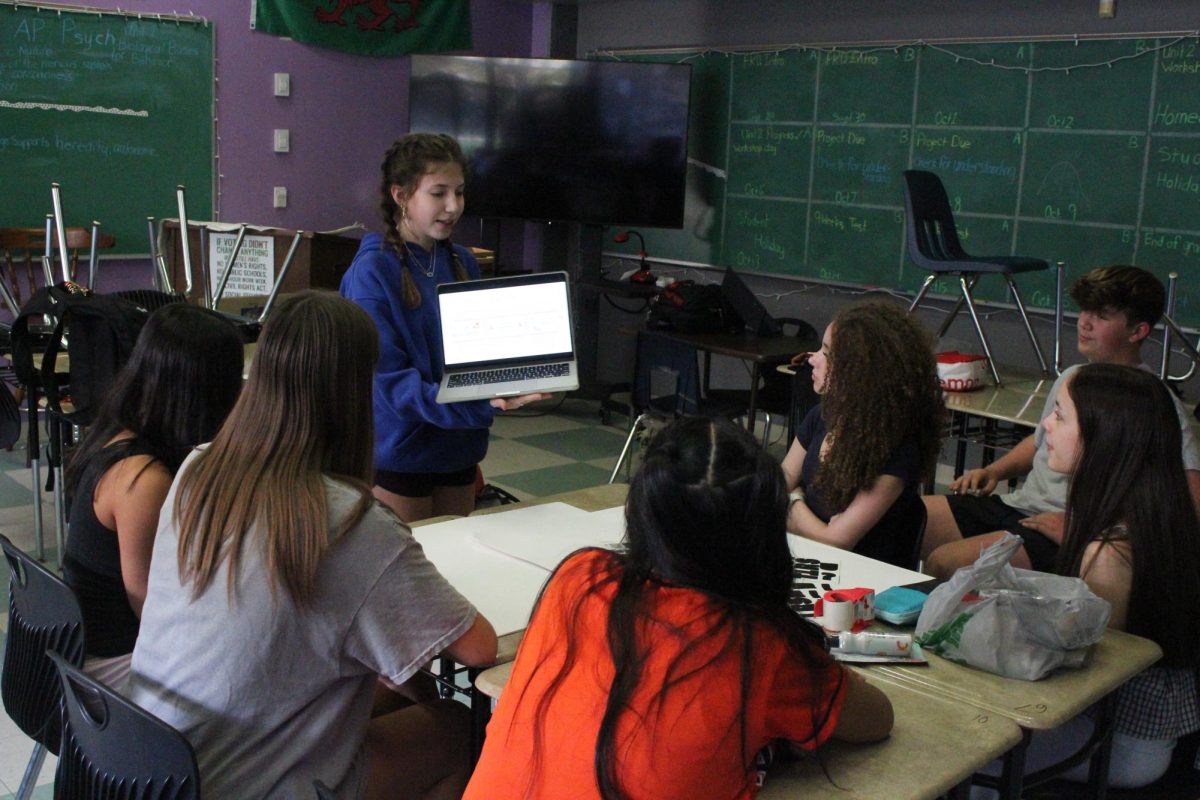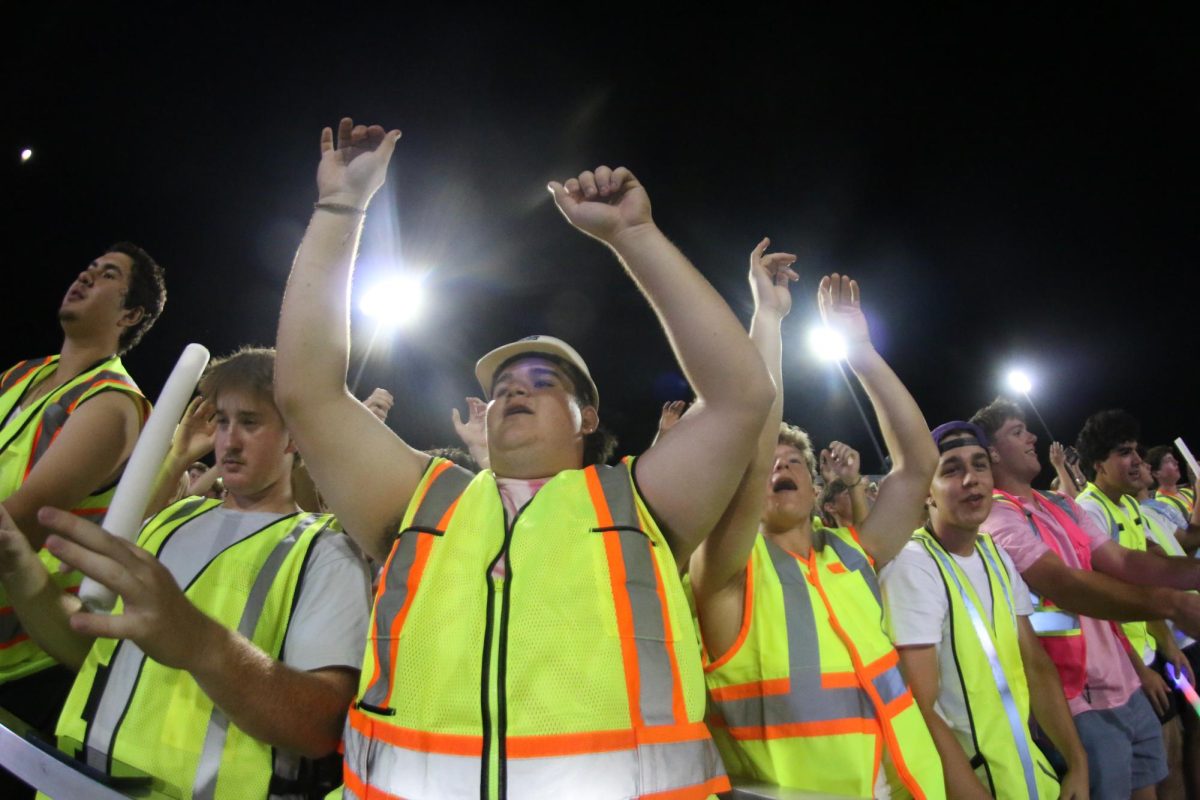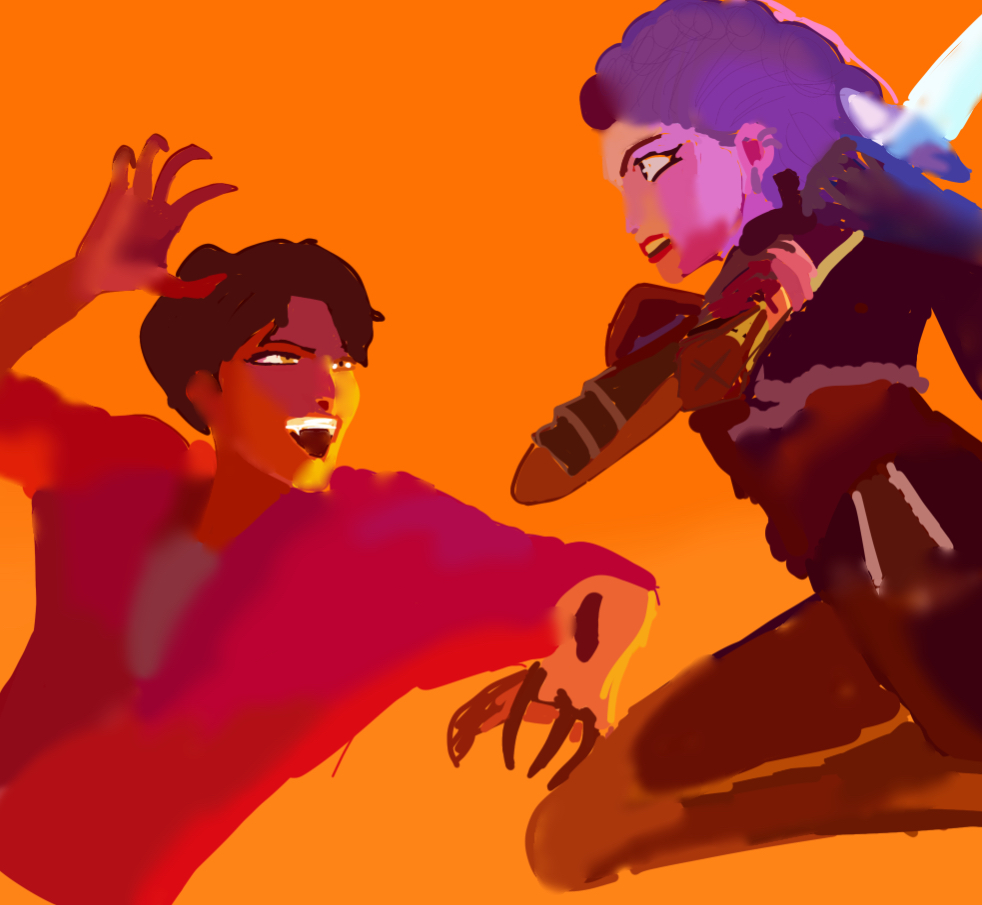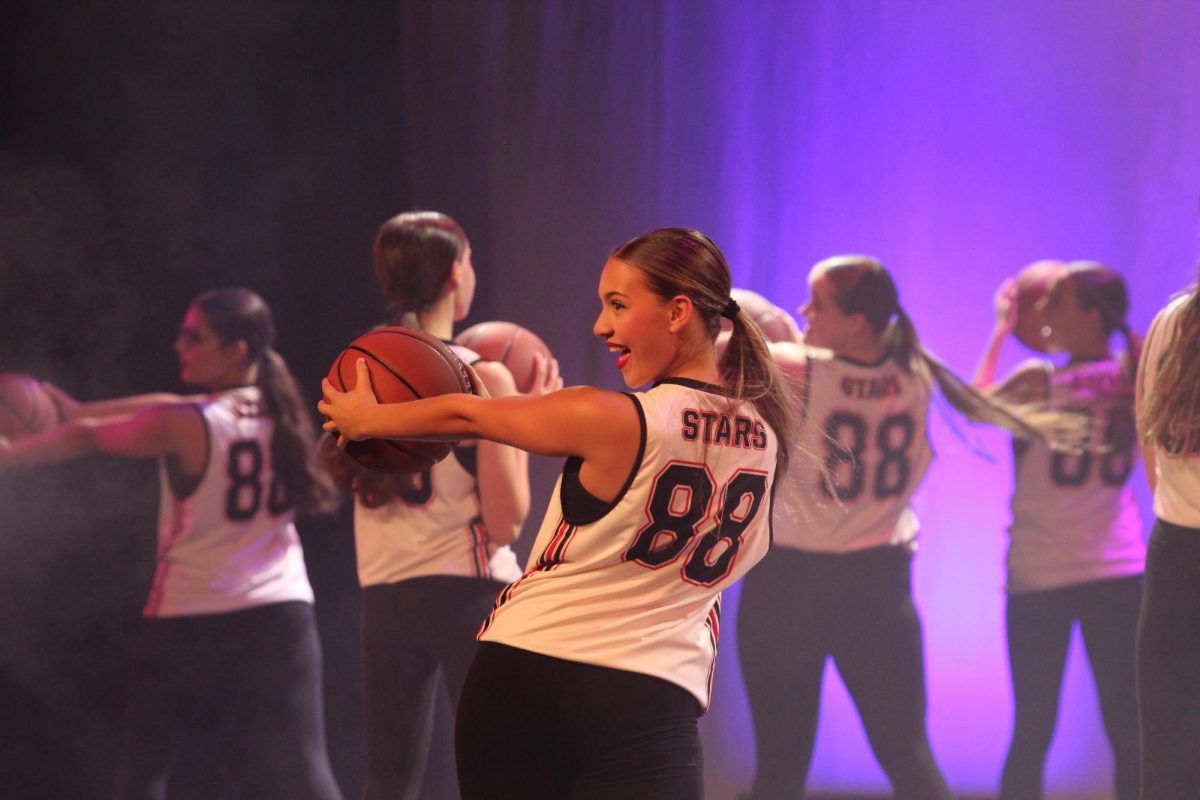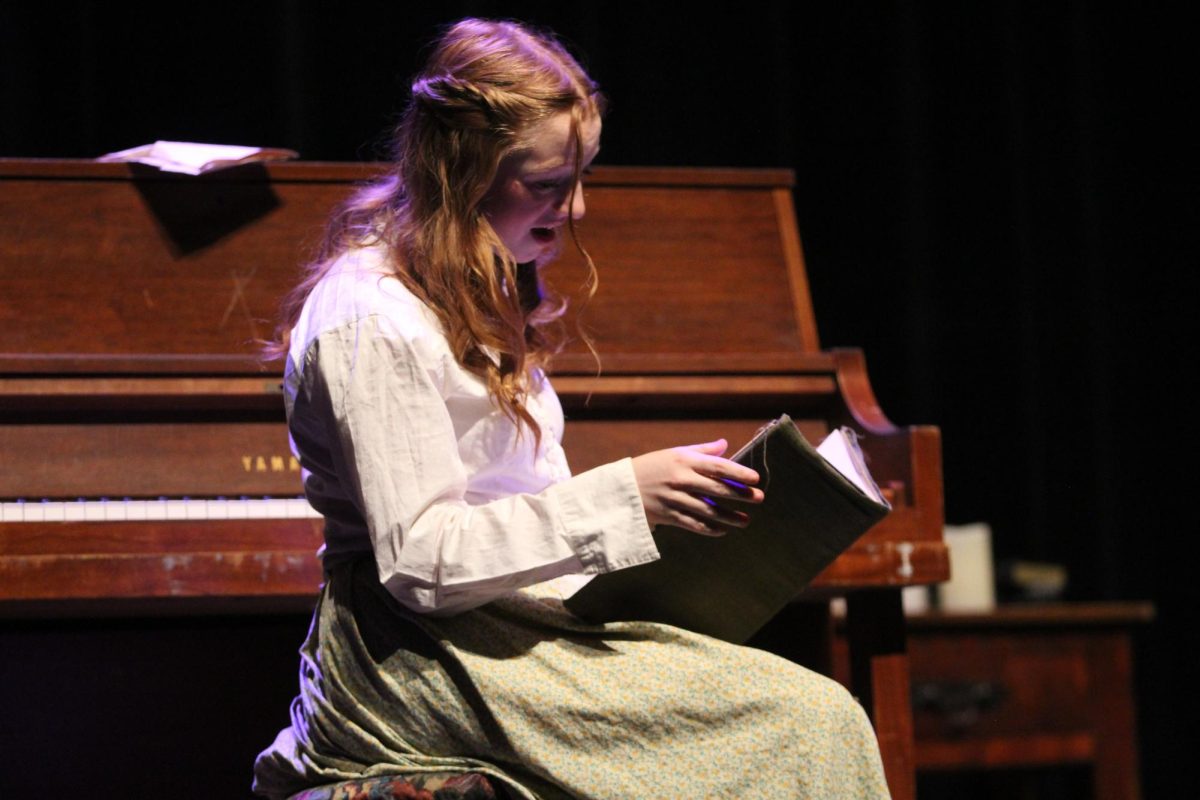One by one, the Bowie orchestra students tune-up for an unforgettable day, ready to showcase the first-ever classic rock performance in Bowie history, celebrating the fiftieth anniversary of the Fall Festival for Strings. The Fall Festival for Strings is one of the largest music events in the district. Approximately 1,000 Austin ISD students participated in the Annual Fall Festival on Thursday, November 14, 2024.
“It was our first time playing something like that,” senior Donovan Cooksey said. “It was a fun experience to learn more about how your instrument works when playing different types of music. I got to learn some more fun pieces to play, that I would typically never play.”
At the classical rock showcase, the elegance of a symphony meets the electrifying energy of a rock concert. Rock classical music fuses diverse rhythms, creating what can be a captivating experience that speaks to the modern soul. While traditional classical embraces formality and history, rock classical breathes new life into the genre.
“Classical rock is different from our typical music,” orchestra vice president senior Gabriela Catalina said. “The rhythms on the page are not meant to be played exactly as written. Also during our performance, we did not play with a conductor and instead had to listen to each other. So, the whole performance was different. Rock music is more commonly heard than our orchestral pieces, which certainly makes it easier to learn new music, as we come in already having a good idea about what the piece should sound like so it was not too hard.”
The orchestra program at Bowie has approximately 130 members. The fall string event is a volunteer activity with about 15 members from Bowie who attended. Fall Fest was mostly attended by beginner orchestra but many senior players will still go.
“I went back to Fall Fest for nostalgia’s sake,” senior Minh-Tam Dao said. “The last time I went was when I was beginning to learn cello in sixth grade. I think Fall Fest is a fun opportunity to showcase the efforts made so far and build a larger connection with the orchestra as a whole.”
Bowie has been an Honor Orchestra finalist four times and according to Cooksey students often have to work on their craft for years to reach the highest rank. The highest tier of orchestra is SYMPHONIC level 4, with the other levels being Philharmonic, Sinfonietta, and Camerata. As students progress to higher levels, they encounter more challenging pieces and an increase in practice hours.
“I am in the Symphony Orchestra,” Catalina said. “I try to practice every day and have been playing violin since sixth grade. I first joined because I had been fascinated with the violin for most of my life. I had always wanted to understand how the movement of hair across strings could create sound, and I wanted to take part in creating the beautiful music that I had heard others play.”
According to Doa engaging in music can be a valuable form of artistic expression and can also serve as a means of self-challenge. The multitasking involved in playing music stimulates brain activity and promotes the formation of new neural connections, which may contribute to learning and cognitive skills in areas beyond music.
“I gained a lot of listening and communication skills from the orchestra, due to the importance of communication for successful playing as a whole orchestra,” Doa said. “ I plan to take and use those skills outside of my music career for my future. Music has a unique and fun way of bringing people together, and the relationships I’ve forged from the orchestra prove that.”
The rockestra was the new orchestra teacher David Jarrott’s idea. Students believe that Jarrott’s methods give a new beginning to the students making them improve in their playing skills.
“Our director is an effective leader,” Catalina said. “I feel that we have begun to sound better than in years past, partly due to Jarrott’s methods. Jarrott has a great sense of humor, cares very much about his students, and accepts only the best from our playing. He pushes us to practice and strive to be the best musicians that we can be. Part of his effectiveness as a leader stems from his confidence in his methods, but also his willingness to accept feedback.”
According to Catalina, students appreciate Jarrott for creating the opportunity to meet players who once competed at their level. The fall strings event may be able to help improve skills in playing but also allows students to socialize with different orchestra levels.
“I would recommend that people continue attending String Fest,” Catalina said. “I think that it helped to mark the beginning of many of our journeys as musicians. It strengthens the relationships we make throughout individual orchestras. I have gotten to know the majority of my closest friends through the orchestra. These people have become so important to me that I could not imagine my life without them. Beyond the musical opportunity that we were given, I appreciated the opportunity to spend time with my close friends while looking back on old memories.


